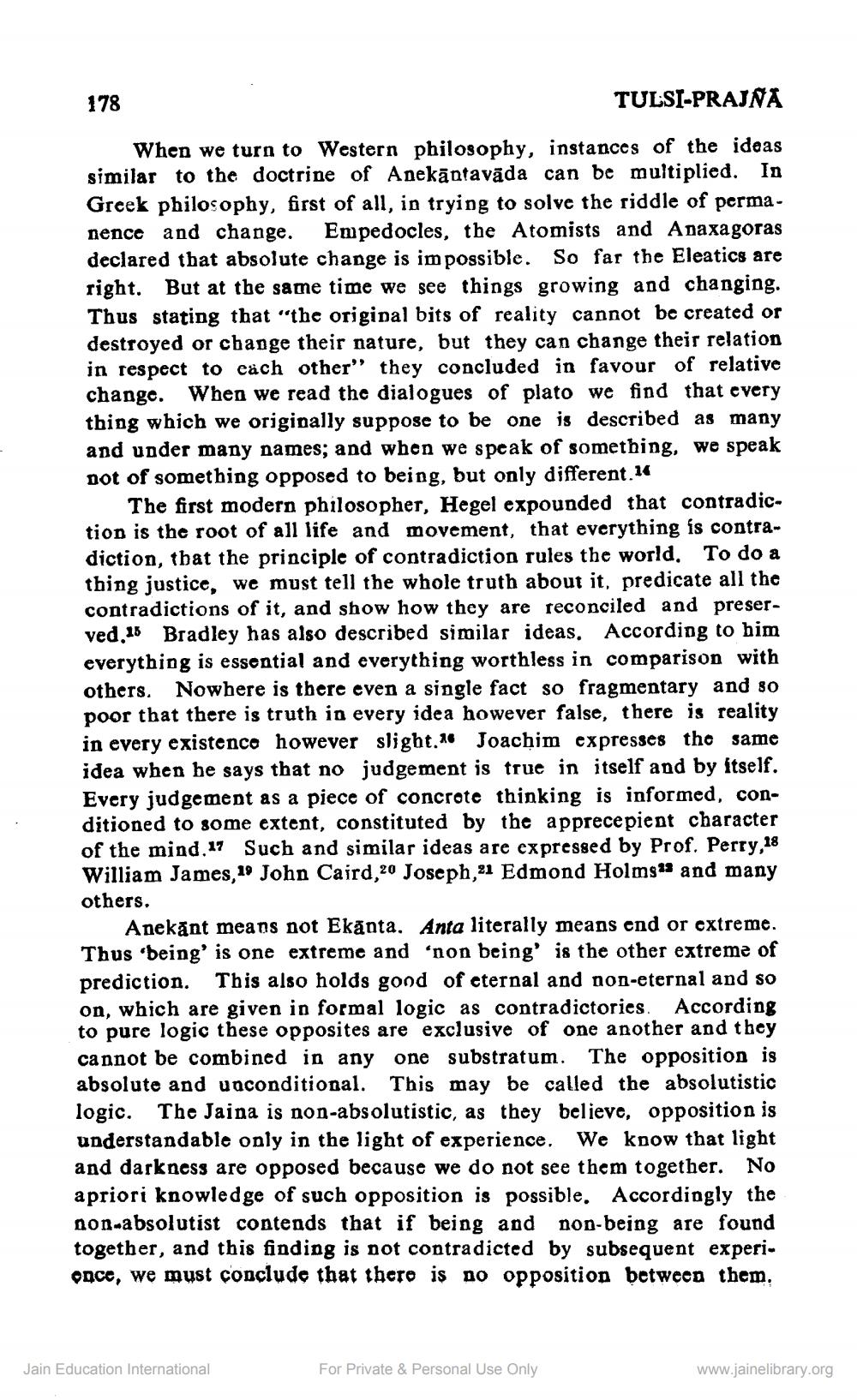________________
178
TULSI-PRAJNA
When we turn to Western philosophy, instances of the ideas similar to the doctrine of Anekāntavāda can be multiplied. In Greek philosophy, first of all, in trying to solve the riddle of permanence and change. Empedocles, the Atomists and Anaxagoras declared that absolute change is impossible. So far the Eleatics are right. But at the same time we see things growing and changing. Thus stating that "the original bits of reality cannot be created or destroyed or change their nature, but they can change their relation in respect to cach other" they concluded in favour of relative change. When we read the dialogues of plato we find that every thing which we originally suppose to be one is described as many and under many names; and when we speak of something, we speak pot of something opposed to being, but only different.16
The first modern philosopher, Hegel expounded that contradiction is the root of all life and movement, that everything is contradiction, that the principle of contradiction rules the world. To do a thing justice, we must tell the whole truth about it, predicate all the contradictions of it, and show how they are reconciled and preserved, 16 Bradley has also described similar ideas. According to him everything is essential and everything worthless in comparison with others. Nowhere is there even a single fact so fragmentary and so poor that there is truth in every idea however false, there is reality in every existence however slight.26 Joachim expresses the same idea when he says that no judgement is true in itself and by itself. Every judgement as a piece of concrote thinking is informed, conditioned to some extent, constituted by the apprecepient character of the mind. 17 Such and similar ideas are expressed by Prof. Perry,18 William James, 19 John Caird, 20 Joseph,21 Edmond Holmsas and many others.
Anekant means not Ekānta. Anta literally means end or extreme. Thus 'being' is one extreme and ‘non being' is the other extreme of prediction. This also holds good of eternal and non-eternal and so on, which are given in formal logic as contradictories. According to pure logic these opposites are exclusive of one another and they cannot be combined in any one substratum. The opposition is absolute and unconditional. This may be called the absolutistic logic. The Jaina is non-absolutistic, as they believe, opposition is understandable only in the light of experience. We know that light and darkness are opposed because we do not see them together. No apriori knowledge of such opposition is possible. Accordingly the non-absolutist contends that if being and non-being are found together, and this finding is not contradicted by subsequent experionce, we must conclude that there is no opposition between them.
Jain Education International
For Private & Personal Use Only
www.jainelibrary.org




